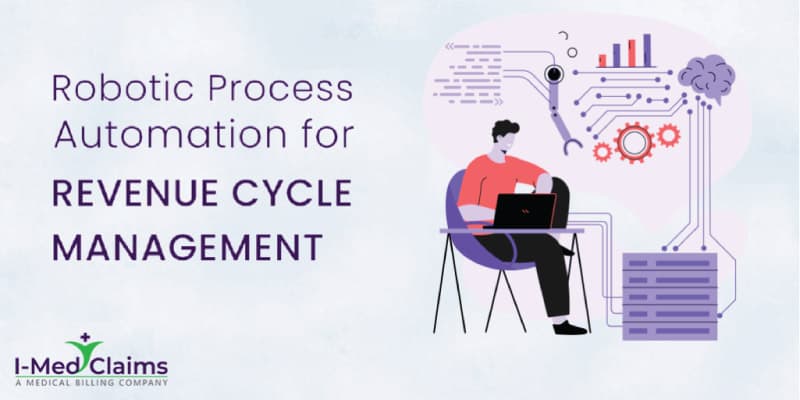RPA Is Revolutionizing The Healthcare Revenue Cycle. What Do You Need To Know?
Robotic Process Automation (RPA) is used to help employees organize their workflow. It can benefit healthcare organizations in many ways.
RPA – The Future of Healthcare RCM
Robotic Process Automation (RPA) is a form of automation that uses robots to complete tasks that are traditionally handled manually. This strategy has been designed for a long time. Streamline efficiency in manufacturing and other industries. For healthcare, RPA technology has extraordinary advantages, especially when it comes to revenue cycle management (RCM).
RPA ensures that billing and claims processes are accurate, with no room for error. Human error can cost an organization time to solve problems, and it can even lead to non-payment for services. Increased efficiency is one of the reasons why RPA technology is well suited for many areas of healthcare, from billing and coding to scheduling and charting.
What is Robotic Process Automation?
RPA uses robots to perform standard operations that humans must perform manually. By definition, someone oversees these processes to some extent. Computer programs don’t think about you or use workflow to follow the process through various solutions. There is a major difference between RPA and Artificial Intelligence (AI) which is normally people confused. AI uses machine learning, allowing software to learn from past scenarios and evolve. Occasionally, people use the two techniques interchangeably, but they are two different types of solutions.
RPA technology is used to help employees streamline their workflow. It can benefit healthcare organizations in several ways. Using RPA technology for repetitive tasks can free up staff time to work at a higher level, benefiting both the patient and the organization.
Pros of RPA for Revenue Cycle Management
RPA provides RCM with superior advantages because there are many complex parts in the process, all of which must be handled with care. With this in mind, human error can have a particularly detrimental effect on billing and claims cycles in your organization. RPA technology eliminates errors caused by mistyped data and simple human error. Furthermore, RPA also enables these processes to move quickly. Plus, RPM can complete tasks in minutes that could take employees hours.
Here are some RCM tasks that can be simplified using RPA:
- Prior-Authorization
- Insurance Verification/Eligibility
- Submitting Claims
- Patient Bill
- Account Analysis
RPA allows you to automate repetitive tasks and extract information from multiple data sources. The software examines information and transfers data from one source to another, so there is no need for manual entry.
RPA Becoming An integral part of RCM Medical Billing
Clinics and healthcare organizations are turning to RPA as it reduces errors and increases profits. These are some of the main reasons. Organizations using this technology see fewer errors, which also means less time for employees to try and correct mistakes. It also benefits from greater efficiency. Employees are freed from repetitive tasks to more effectively manage other higher-priority responsibilities.
Another benefit of using RPA technology is increased employee job satisfaction. Streamlining workflows and eliminating routine tasks means employees are less burdened and more involved in activities that allow them to fully contribute to the organization. A well-implemented RPA solution allows organizations to handle these administrative tasks on an ongoing basis, not just when employees are free to work.
Cons of not using RPA
RPA technology is more accurate than other solutions. It uses programmed robots to complete assigned tasks in the same way as employees. For companies not using these solutions, the tasks of comparing data across platforms, submitting claims, and completing billing and administrative tasks will be overseen by employees. While some EHR software includes a variety of automated tools, there are still many tasks that require employee oversight and completion. This means that errors are more likely and tasks will take longer to complete.
How I-Med Claims use RPA for RCM?
I-Med Claims knows each physician’s need as we develop RPA technologies to help our clients use their employees more efficiently and reduce the cost of RCM. Automated, repetitive, high-volume, rules-based RPA operations. This enables your medical practices to reduce revenue cycle time, increase efficiency, reduce errors, streamline operations, reduce overhead and increase profits.


